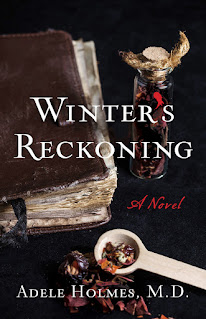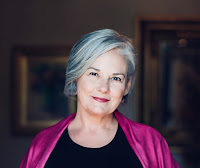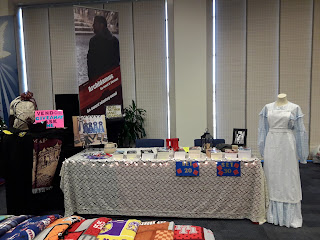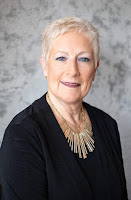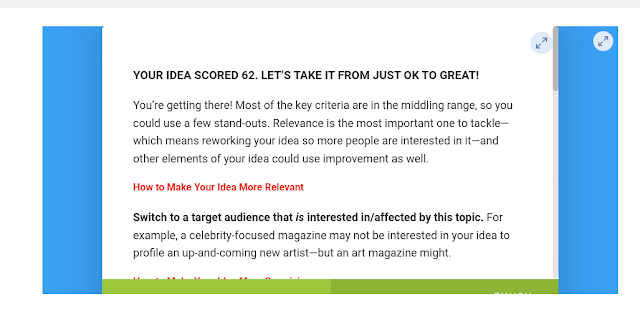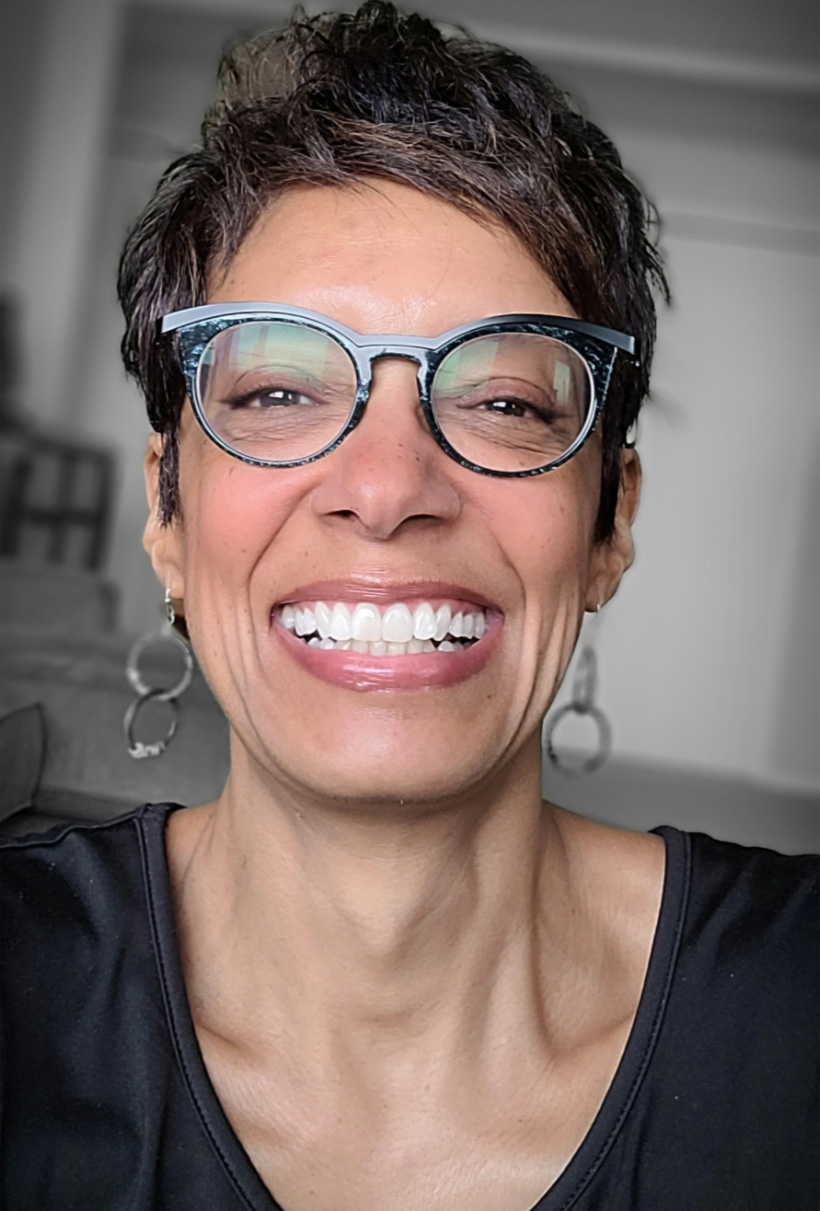
Kathryn’s Bio: Kathryn A. Brackett is a native of South Carolina and holds a MFA
in Fiction from the University of Pittsburgh. Throughout her writing career
she’s developed her craft at prestigious programs like Sewanee Writers’
Conference while earning numerous accolades in literary competitions, some
judged by notable writers like Sara Gruen. Brackett’s writing has also appeared
in print and online literary journals, to name a few, Emrys Journal, Waccamaw, Mythium:
The Journal of Contemporary Literature, and most recently, a horror/love
story about Friday the 13th in Tales from
the Moonlit Path. Her work has been anthologized in Short Story America,
and in the early stages of her career, C. Michael Curtis, senior editor
of The Atlantic, chose one of her pieces for inclusion in Expecting
Goodness & Other Stories, which was runner-up in the Independent
Publisher IPPY Awards in 2009 for the top collection of short fiction in North
America. Her story was later adapted to screen in the Expecting Goodness Short
Film Festival and won for Best Film. Brackett continues to write when she’s not
teaching English. She is currently working on a novel. You can find her
at www.kathrynbrackett.com.
If you haven't read Kathryn's story, "Letting Go," do that and then come back to learn about Kathryn's writing.
-----interview with Sue Bradford Edwards-----
WOW: What was the inspiration for “Letting Go”?
Kathryn: Back
in the fall of 2021 a mysterious visitor began coming to my backdoor. The
doorbell rang the first time at an hour of the night when I wasn’t expecting
company. When I didn’t see anyone out the window, I assumed it was my neighbor
and instantly felt unnerved when I discovered it wasn’t after a quick phone
call. When it happened a week later, also at night with no one standing at the
door in the quick time I reached it, I started imagining various scenarios: the
doorbell was dying, or someone was playing tricks on me; either way, I didn’t
like it. The next event occurred on a rain-soaked afternoon. It took less than
10 seconds for me to get to the door, and just as I peeped out the curtain, I saw
a thin, straggly-looking white man with wet hair bolting off the steps while
talking to someone I couldn’t see. He scurried through the backyard and
disappeared behind the high-walled fence that borders my property. The barrier
belongs to the city, meant to cover vast overgrown brush that humans are not
supposed to trudge through, especially during a downpour. But there he was,
shirtless and scaling a steep, slippery hill in clogs with blue jeans rolled up
to his calves, screaming obscenities in a self-consumed conversation that I
fearfully took in from my silent perch on top of an old tree stump as I peeked
over the fence. I called the police immediately, and they eventually identified
him, keeping an eye on his whereabouts for weeks, though they were unsure why
he’d chosen my backdoor since I live in a crowded neighborhood. Later on my
neighbor boarded up the small opening in his yard where the man had undoubtedly
squeezed through to get to mine. As an added precaution, my boyfriend installed
security cameras outside my house, often speaking to me through the devices
while I sat on the porch. Sometimes the startling crackle broke through silence
and made me scream, evoking laughter in our conversations; other times his tender
hello simply reminded me of his nearby presence.
One
day while sitting at my computer struggling to think of a story for an upcoming
WOW competition, that drenched stranger came to mind, along with James’ spirit latched
to my psyche. Every fiction writer understands that characters are “real” in
our minds. Each creation brings a voice with it, each voice, a life, so I
sensed James’ frustration and adoration for his wife immediately. He wouldn’t
tell me his name at first, or his real struggle, but I knew he watched her through
a security camera at the backdoor where men slipped in and out at all hours of
the night. I slowly became entwined in his grief, desiring a sense of safety
for him I knew could only be achieved once she took down the camera. She had to
let go of him first before he could embrace his true reality. I struggled with
the gut-wrenching ending for two months, but I always felt from the very beginning
that it would be sad. No matter how gloomy, scary, or muddled my characters’ lives
are, I owe it to them to listen to their stories, so writing James’ narrative was
not only therapeutic during a foreboding situation in my life, but it was also my
way of watching over him. That process brought me the most peace.
WOW: Flash fiction is so tight. How did you decide which details deserved
space in your story and which details had to go?
Kathryn: I never thought I’d be able to write
flash fiction because I’m a prose writer who has no trouble exceeding a 5000 or
6000 word count in a short story, but lately I’ve wanted to embrace a new
writing challenge, to step outside my comfort zone and see what I can produce. “Letting
Go” barely made the 750 word limit, and believe me, it was hard to trim down! I
admire writers who can relate stories in a short amount of time, especially poets
whose succinct nature of storytelling has the power to draw people to their
knees in profound gratitude. When I considered the bare bones of “Letting Go,”
I knew there needed to be a solid motivation for the protagonist, some desire
to thrust James forward in spite of his challenges. Initially he was so tacked
to his anger over these miscellaneous men at his house that the tone of the
story was quite crass. At times I felt like I was trapped in a room with a very
surly man who refused to disengage from the only emotion he was hell-bent on displaying.
I knew the story had more dimension than that though, so I kept prying details
out of him while cutting away facts that didn’t feed the narrative its
essential elements.
Eventually I discovered the story was about love, not rage,
and slowly I began to sink into his loss over a wife that had moved on with
another man while he was still stuck in grief as elusive as his death. Loss is
a theme that I explore in most of my work, as well as finding ways to move
through pain that paralyzes hope, but James’ situation was tricky because I had
to weave in subtle hints of his demise throughout the narrative without sacrificing
his epiphany at learning he was dead. Providing descriptions like “a purse
large enough to hold a tombstone” and “surviving on heartache instead of a
pulse” were integral moments I hoped would read smoothly on the page yet snowball
into a powerful punch as readers rounded the corner to the final two paragraphs.
Writers like Stephen King, Flannery O’Connor, and Shirley Jackson have
constructed stories that have blown my mind. I’ve dissected their work over the
years, focusing on the skillful way they implant the smallest details to
illuminate the element of surprise. Scenes burst off the page exactly when they
should. God knows I’m still learning how to do this well, but it was very
exciting and fulfilling to find that creative balance in “Letting Go.”
WOW: As a teacher, what do you think is the most important
lesson for new writers to learn about writing flash?
Kathryn: Writing flash fiction requires making
purposeful choices with imagery, dialogue, setting, whatever it may be, because
each sentence needs to help the character achieve his or her goal. You must be
willing to let go of languid thoughts that provide little action and find more
concise, powerful ways to express ideas. Sometimes that means combining
description in a way that feels very blunt yet concrete, or using a strong verb
to elevate a moment. Even one line of dialogue can carry enough momentum to
progress a scene into the next, if it’s the right choice of words. I always
tell my students to never be afraid to write and rewrite a thousand times if
something isn’t working.
Earlier in my writing career, I used to be so afraid
of gutting entire paragraphs, but now I know it’s necessary for growth. “Letting
Go” went through multiple drafts over the course of several months, and I had
to step away from it a few times since James wasn’t always easy to get along
with; remember we were locked in a proverbial room together, sometimes I just
wanted to slap him. But it’s important to walk away from a story for a bit when
you and the characters aren’t in tune. Having that physical and mental space will
help you appreciate the blooming field of creativity that often comes while you’re
focused on something else. Sometimes all a story needs is more soil, more time
to breathe. When you give it exactly what it needs, it will nourish you too.
WOW: What advice do you have for readers who are considering
entering the WOW! flash fiction competition or another writing competition?
Kathryn: I used to have this grandiose idea
that every piece of writing in a bookstore was instantly published upon its
first draft. My naivety quickly dwindled when I started getting writing rejections
at a very young age. I no longer keep count of the no’s when I enter contests
or submit to literary journals; I expect them, even appreciate them at times,
since it forces me to reexamine my work in a closer way before resubmitting it
somewhere else. At one point in my life, I used to put rejection letters on my
refrigerator, but now I occasionally pin them to my corkboard in my office,
reading them on the worst of writing days, which pushes me to keep doing what
I’ve been called to do. Writing is so subjective, but it’s comforting to know what
one person dislikes may very well fill up someone else’s grey sky with
happiness that leads to a solid acceptance of your work.
I’m reminded of
something that Will Smith once said. Though I know he isn’t highly regarded
right now, his walk of faith to persevere in his career is renowned. He spoke
of this one time, and I’m paraphrasing, obviously, about how failing is
necessary for any goal you’re working towards. If you don’t fail, you don’t
grow, and if you don’t grow, you don’t succeed. Fail, and fail often. His
resolute declaration stays in the back of my mind, especially when self-doubt
tries to imprison me, as it does for every writer.
You’ll tell yourself all kinds
of reasons why you should stop writing, and the naysayers in your life will try
to convince you to take a different path. After your umpteenth rejection, you
might be compelled to take their advice, but you must honor that
anointed feeling within you, the one reminding you
to press onward to the finish line. There are no accidents when it comes to storytelling.
Narrative voices that wake you up in the middle of the night, or force you to
pull over to the side of the road to jot down a thought or two or twenty, are
always speaking for a reason. The ones that glue you to your computer chair for two days without food or sleep are so bound to your soul
that ignoring them would surely be a disserve to you both. You mustn’t give up
on them, or yourself.
WOW: As someone who is working on a novel in addition to
writing flash, what skills do you think can be carried from one type of writing
to another?
Kathryn: I
can recall countless stories over the years that have changed my life. I
remember the ones that have brought me to tears or terrified me in keeping the
lamp on all night. It’s a gift, I think, how someone’s imagination can make you
rethink the entire world around you. I know I’m not alone in this sentiment
because students are still actively reading Edgar Allan Poe and Emily Brontë. They
want to feel goosebumps when that tell-tale heart is beating nearby. They want
to get swept up in Heathcliff’s romantic madness over a woman he doesn’t know
how to stop loving, and quite frankly, we hope never does. Those endearing and
enduring themes can be explored in short or long narratives, so long as there’s
something magical to experience in them. It’s all about telling a good story.
As a writer, you must open your heart to the narrative that works for you. You
must listen to your characters’ struggle even when you’re afraid of the
outcome. Be patient with them, and with yourself, since it’s easy to get
discouraged on a journey that could take years to complete, even if you’re
writing flash fiction. I have to laugh at this, and it may sound strange to
anyone who isn’t a writer, but my characters often tell me when they’re ready
to let go of my hand, not the other way around. I can’t explain it; it’s just a
feeling in my core, like the person is saying, “Thank you for staying by my
side, but I’m okay to walk on my own now.” It doesn’t matter if that connection takes place over a few paragraphs or hundreds of pages,
because my job as a writer is to see them through, and if their story offers
even the slightest bit of hope, or change to someone else’s life, then I’m happy
to stand back and watch that character I love walk away. It’s the greatest of gifts,
a blessing I wouldn’t trade for anything.
WOW: And we are so grateful that you've decided to share your gifts with the WOW community!







